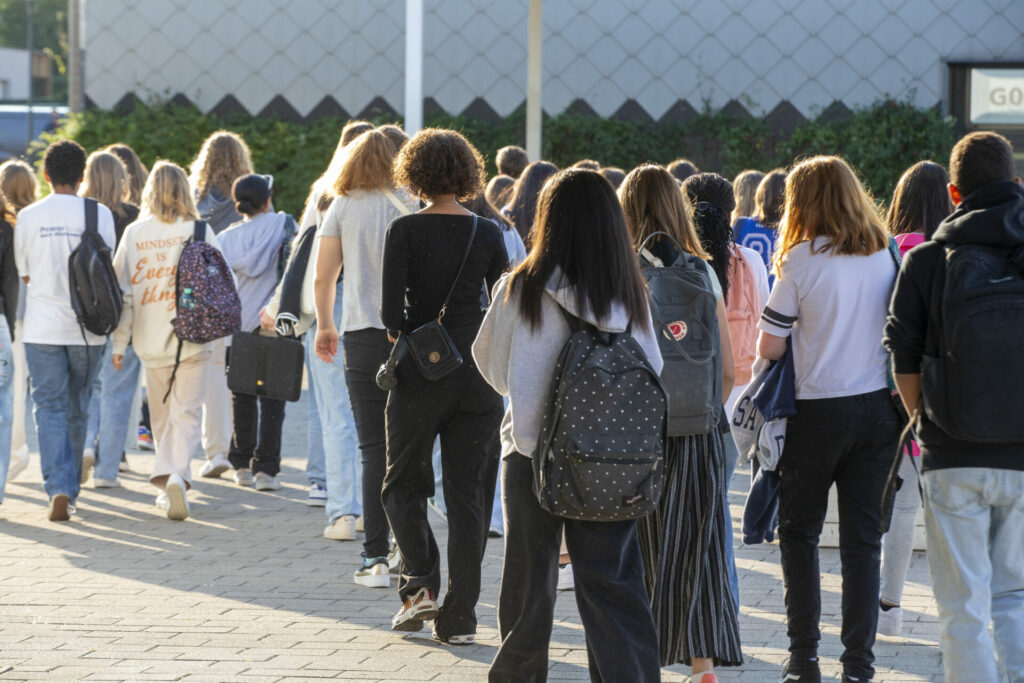A rising number of students in Flanders and Brussels feel racially discriminated against, which can have serious negative consequences for a child's school career.
The Interfederal Equal Opportunities Centre, Unia, reported that in Brussels, the number of discrimination cases being recorded in schools saw a sharp rise last year, Bruzz reported.
The centre received 1,163 reports of discrimination across all domains, and while this is a slight decrease compared to 2021, the number of cases within education has risen. Between 2017 and 2021, this invariably involved 32 to 56 dossiers, but last year the number climbed to as many as 83.
This means the region accounts for 30% of all cases filed within the education field in Belgium, and that it records proportionally more cases than the other regions.
Importantly, the report highlighted that discrimination in Brussels mostly concerns religion and racial criteria, while cases in Wallonia and Flanders more often concern disability.
When cases are reported in an educational context, the centre works with the school to find solutions for students who feel discriminated against. However, if the school is not willing to look for solutions, Unia can help students take the matter to court.
Rising problem in Flanders?
Remarkably, most of the cases in Brussels are related to people in higher education, while in Flanders, for example, people in secondary education are more often involved.
This was confirmed in a recent survey by the Flemish Student Union (Vlaamse Scholierenkoepel). The majority of students questioned indicated that they never encountered any form of racism, however, the survey of over 10,000 school-goers showed that 18% have encountered such discrimination. For pupils with non-EU parents, the percentage of pupils that experienced racism rises to 49%.
"These are very high numbers," said Lore Sleeckx, the Chair of the Flemish Student Union. "They shouldn’t be this high – school should be a safe and pleasant environment for all students."
The acts of discrimination range from racism being downplayed by staff members to non-Belgian students not receiving the same help when it comes to learning languages.
Victims and bystanders indicate that racist remarks or abusive language came from both fellow pupils and teachers. When coming from teachers, most students do not dare to tell the school out of fear this will affect their grades. Overall, the negative consequences for pupils' further school careers were also pointed out by the union.
The Flemish Student Union proposed that students should be allowed to attend meetings of the Class Council – a gathering of teachers which is the only body that has authority for the admission, evaluation and deliberation of pupils – to ensure organisational transparency.
Sleeckx noted that research has indicated that, in ambiguous situations regarding certification, pupils with a migrant background are more likely to receive a B-certificate, which indicates that a pupil did not achieve good results in one or more subjects and could see them being excluded from certain programmes, than those without one.
Finally, the union also advocates a more diverse teaching staff could help combat racism. "If every student can identify with a teacher, this is a step in the right direction," she concluded.
Related News
- 'Jews are afraid': Brussels Mayor condemns rising antisemitism
- Being black in Belgium: Over half have experienced racism in last five years
However, the conclusion made by the union – that racism has become more prevalent in Flemish schools – has been refuted by the region's Education Minister, Ben Weyts. He suggested that there’s an increasing tendency to report such incidents due to heightened sensitivities to what was previously ignored.
"Today, we are more alert to what was formerly dismissed," Weyts said, arguing that there is an increase in the number of people reporting issues rather than a rise in racism amongst teachers.

